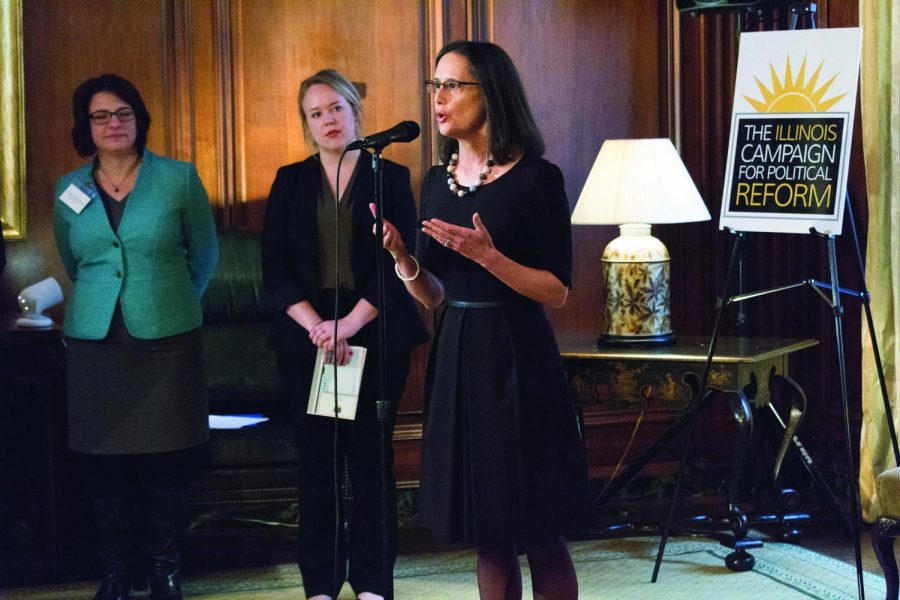State lawmakers discuss methods to reduce sexual harassment
February 21, 2018
A recent panel of Illinois lawmakers called for revisions to the current reporting and filing process of sexual harassment claims for individuals working in state government.
Organized by the Illinois Campaign for Political Reform and held at the Standard Club, 320 S. Plymouth Court, the Feb. 16 panel included state Sens. Melinda Bush, D-Grayslake, and Cristina Castro, D-Elgin, and state Reps. Barbara Flynn Currie, D-Chicago, and Sara Wojcicki Jimenez, R-Springfield, as well as former Legislative Inspector General Tom Homer, whose office is charged with investigating these complaints.
“Every single woman has been victimized by sex discrimination,” Attorney General Lisa Madigan said in opening remarks. “Sexual harassment is no more than an aggressive … form of discrimination.”
The #MeToo movement has been making headway into Illinois state government in recent months. State Sen. Ira Silverstein, D-Chicago, was ousted from his Senate leadership position in November 2017 after allegations of sexual harassment from a former staffer. Kevin Quinn, a longtime aide to Illinois House Speaker Michael Madigan, D-Chicago, was fired Feb. 12 due to sexual harassment allegations.
Quinn’s firing has spurred calls for change, said Susan Garrett, a former state senator who moderated the panel.
Bush said this can be accomplished with the recently formed Senate Sexual Discrimination and Harassment Awareness and Prevention Task Force, of which she is co-chair. The task force’s goal is to evaluate both private and public sexual harassment laws, she added.
“We are filing bills left and right because we know there are things that need to be changed right away,” Bush said.
The legislature has until the end of its session, December, to pass these bills, but the task force hopes to accomplish this before then, said Flynn Currie, the house majority leader.
Ethics complaints in the General Assembly are supposed to be investigated by the legislative inspector general, but after Homer left the position in June 2014, the position remained vacant. This caused the complaints to pile up, and despite Julie Porter’s November 2017 appointment, her contract is only until June, Flynn Currie said.
“A lot of men have not been aware that women are experiencing this. They think it just happens in a fleeting moment and they shrug it off,” said Kerry Lester, author of “No, My Place: Reflections on Sexual Harassment in Illinois Government and Politics,” who also gave opening remarks. “It turns out that so many women replay what happened to them for months or for years at a time.”
Along with organizing a March 27 public hearing with federal and state officials to discuss work environment sexual harassment complaint procedures, Bush said the task force will email a flowchart to senators on how to file complaints. They will request senators post the charts in their offices so victims know what to do should an incident happen, Bush added.
“It is my hope that we can make sure that whatever mechanisms we find to make the world a fairer, better place also will reverberate,” Flynn Currie said. “Not just among the celebrity culture types, but to the hotel maid and to the woman who’s the soul support of her family who’s working at the Breezy diner down the street.”








